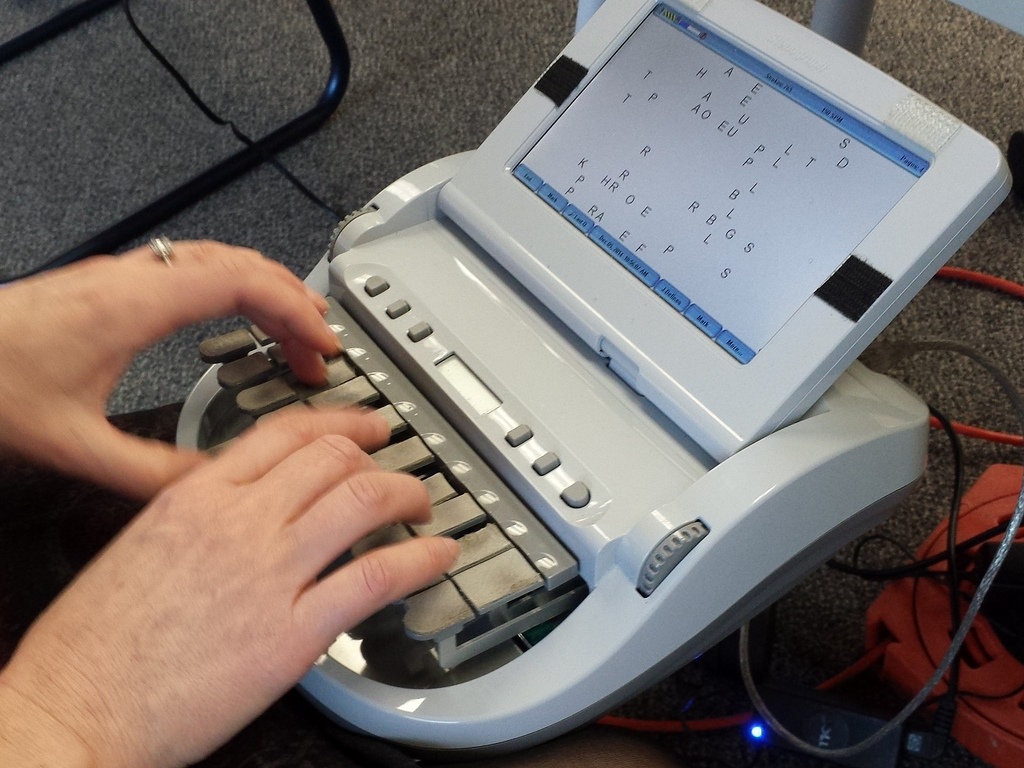Understanding the Relevance of Court Reporting in Legal Provider and Procedures
Court reporting plays a crucial function in the lawful landscape, serving as the foundation of accurate paperwork in different legal proceedings. By providing verbatim records, court press reporters guarantee that every statement and disagreement is meticulously captured, therefore safeguarding the stability of the judicial process.
Duty of Court Reporters

In enhancement to transcription, court reporters are commonly entrusted with managing and preserving the flow of proceedings. They should be proficient in legal terminology and possess an extensive understanding of courtroom procedures to guarantee that the record mirrors the context and subtleties of the discussion. Their work might also extend beyond conventional courtrooms, incorporating administrative hearings, arbitrations, and various other legal setups where documents is essential.
In addition, stenotype reporter might give real-time reporting, making it possible for immediate accessibility to transcripts during process, which can be important for the efficient administration of justice. By guaranteeing that a specific record is kept, court press reporters maintain the honesty of the legal process, offering and facilitating allures as an important resource for attorneys in their pursuit of justice.
Importance of Precision

The duty of precision expands beyond simple transcription; it incorporates the capacity to record the nuances of speech, consisting of tone, emphasis, and non-verbal cues, which can be crucial in recognizing the context of statements made. An accurate document guarantees that all parties involved-- juries, courts, and lawyers-- have accessibility to the same details, promoting justness and transparency in the judicial process.
Additionally, precise transcripts are essential for the appellate process, where greater courts rely upon them to examine reduced court choices. Inaccuracies can threaten the outcome of an allure, possibly affecting an event's civil liberties and freedoms. Hence, the dedication to accuracy in court coverage is not simply an expert responsibility however a cornerstone of justice that promotes the rule of law.
Kinds Of Lawful Proceedings
Treatment a wide selection of lawful contexts, stenotype reporter are vital in different kinds of legal procedures, each calling for distinctive methods and skills. Among the most common types are civil litigation, criminal tests, and management hearings. In civil litigation, court press reporters record motions, testaments, and depositions, ensuring that every detail is recorded properly for prospective appeals or negotiations.
In criminal trials, the function of stenotype reporter comes to be much more important, as they transcribe all aspects of the proceedings, including jury choices, witness testaments, and sentencing phases - Court Reporting. The accuracy and immediacy of these records are extremely important, offered the prospective repercussions for defendants and the integrity of the judicial system
Administrative hearings, often carried out by governmental companies, additionally rely upon court reporters to preserve official documents of proceedings. These hearings can include conflicts regarding governing conformity, work problems, or expert licensing, requiring precise documentation.
Additionally, specialized proceedings such as settlement and arbitration need stenotype reporter to catch the nuances of arrangements and agreements. Each type of legal proceeding presents distinct challenges, underscoring the relevance of experienced court reporters in supporting the stability of the legal process.
Technology in Court Reporting
Advancements in technology have actually transformed the area of court reporting, enhancing both performance and accuracy in the transcription process. Standard approaches of manual note-taking have been supplemented and, sometimes, replaced by sophisticated electronic tools that enhance workflows and improve accuracy (Court Reporting). Stenotype reporter now utilize sophisticated steno devices geared up with real-time transcription abilities, permitting instant accessibility to a verbatim account of procedures
Furthermore, the combination of speech recognition software has actually additionally changed the coverage landscape. This technology allows the automatic transcription of talked words, dramatically minimizing the moment needed for creating main records. In addition, cloud-based platforms facilitate very easy storage space and retrieval of records, ensuring that legal specialists can access crucial papers from anywhere, at any type of time.
Video clip conferencing devices have actually also emerged as crucial components in remote depositions and hearings, assisting court reporters record proceedings in real-time, regardless of area. The combination of these technical innovations not only boosts the precision of lawful documentation but also sustains an extra efficient and versatile legal procedure. As the area remains to evolve, embracing these developments will be vital in satisfying the growing demands of the legal market.
Ethical Considerations in Reporting
The assimilation this of innovation in court coverage brings with it a set of moral factors to consider that specialists have to navigate thoroughly. As stenotype reporter significantly utilize electronic tools, issues bordering integrity, confidentiality, and accuracy involve the center. Protecting delicate info is critical; reporters should guarantee that any type of digital documents are securely saved and shared only with licensed people.
Moreover, the accuracy of transcriptions is critical. Making use of software for real-time reporting does not absolve stenotype reporter from the obligation of making certain that the final item is precise. Moral obligations determine that any kind of errors must be without delay dealt with and connected to appropriate celebrations.

Finally, conformity with legal requirements and industry laws is important. Court reporters must stay notified regarding evolving moral guidelines to support the depend on positioned in them by the legal system. By attending to these moral factors to consider, court press reporters can continue to supply vital services in lawful proceedings while maintaining public self-confidence.
Conclusion
Finally, court reporting plays a crucial function in the legal system by making additional info sure accurate and dependable documentation of judicial process. The thorough work of court press reporters maintains the stability of the legal process and supports the rights of individuals entailed. The assimilation of technology enhances performance while preserving ethical criteria. Inevitably, the importance of court coverage can not be overemphasized, as it functions as a vital foundation for justness, transparency, and the efficient administration of justice.
Court coverage plays a pivotal function in the legal landscape, serving as the foundation of precise paperwork in numerous lawful procedures.Court press reporters constantly play a vital duty in the judicial description procedure by developing exact, verbatim transcripts of legal proceedings.Furthermore, exact transcripts are vital for the appellate procedure, where greater courts count on them to review reduced court choices.Covering a broad variety of lawful contexts, court reporters are important in various types of lawful process, each requiring distinct techniques and skills. By attending to these moral factors to consider, court press reporters can continue to provide vital solutions in lawful procedures while keeping public self-confidence.